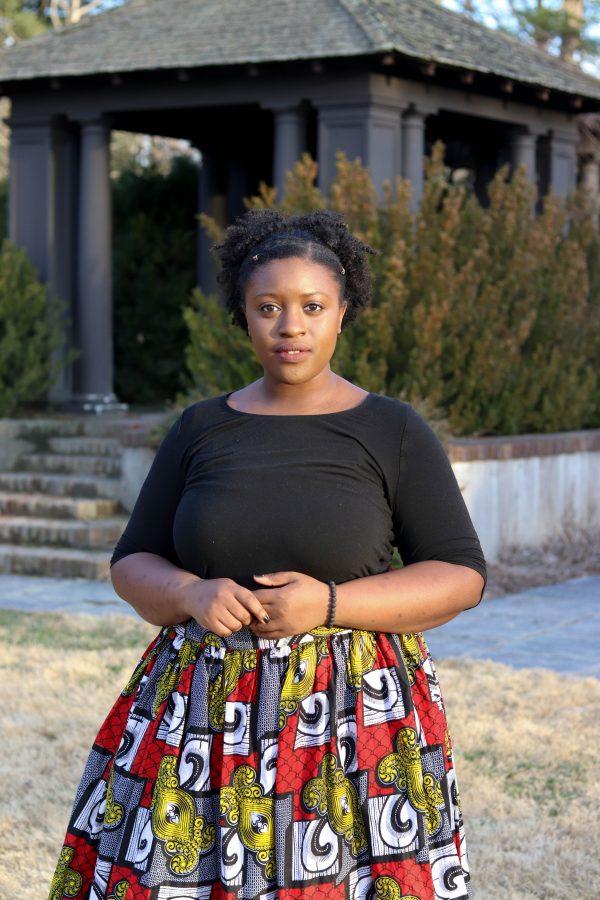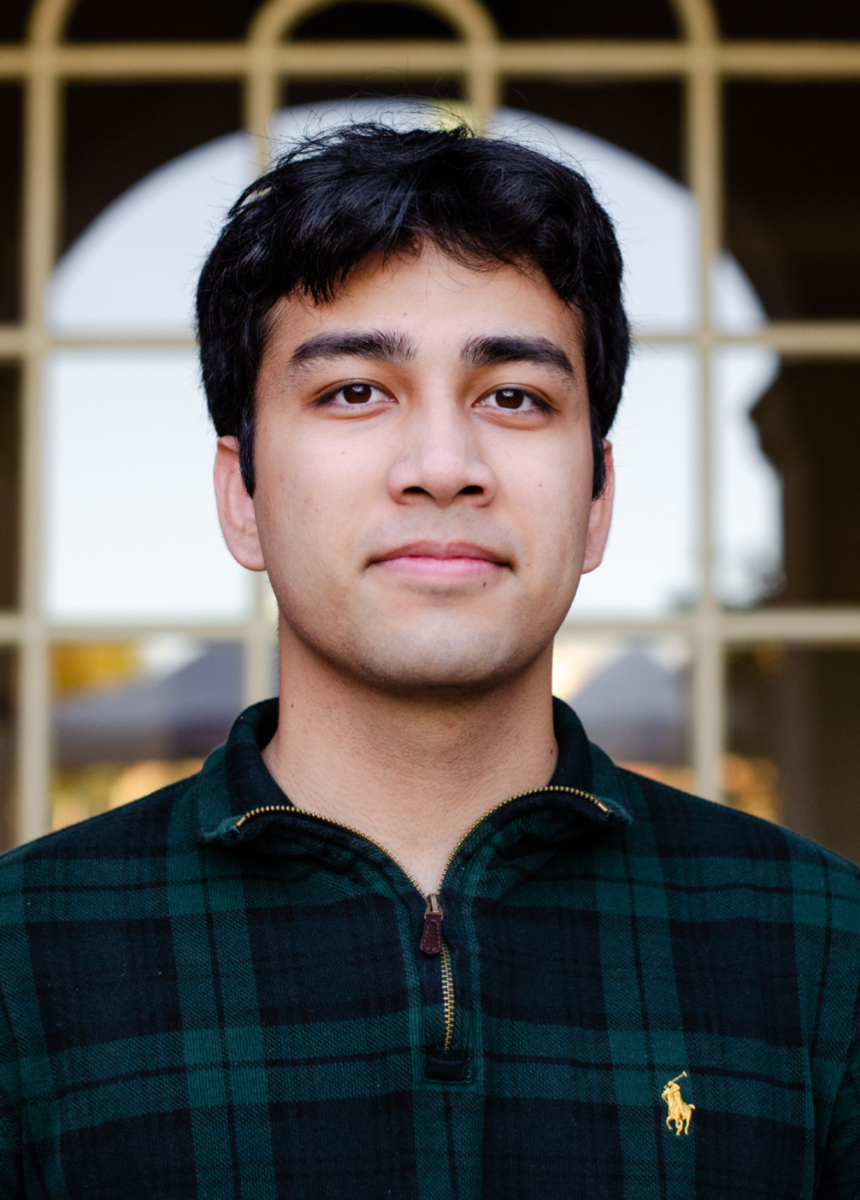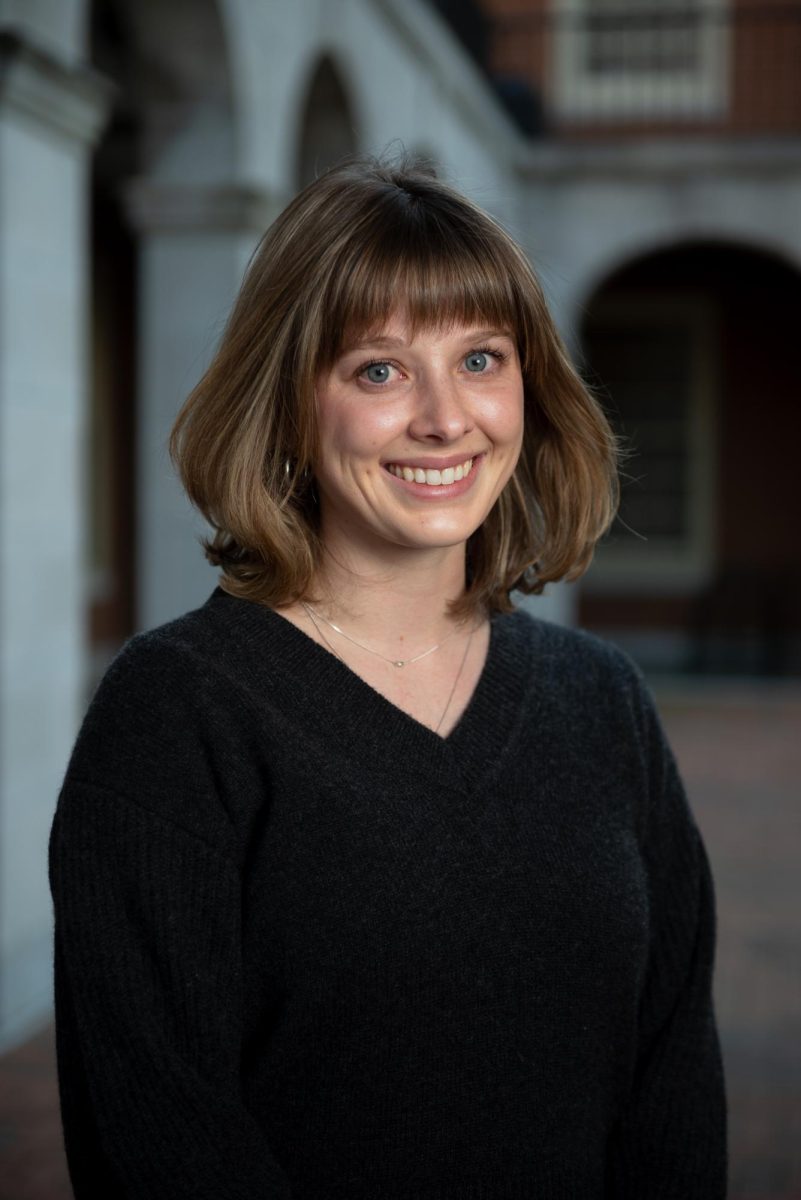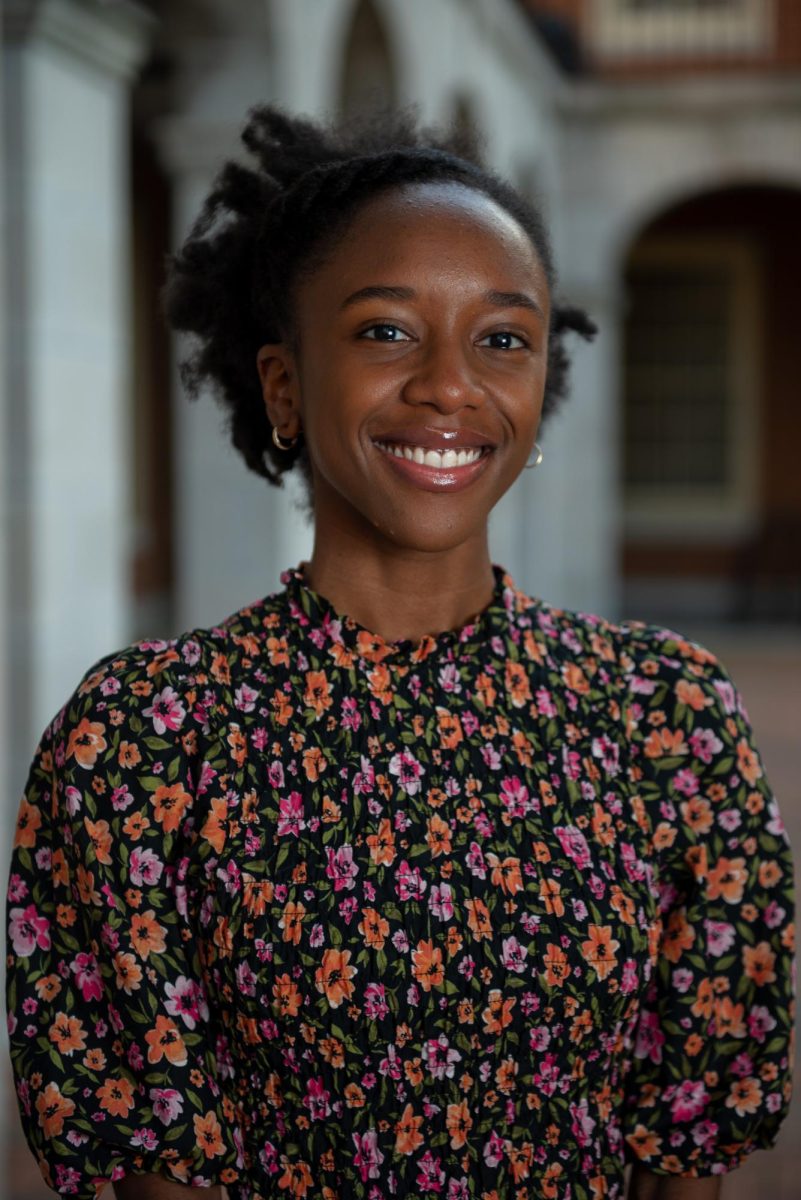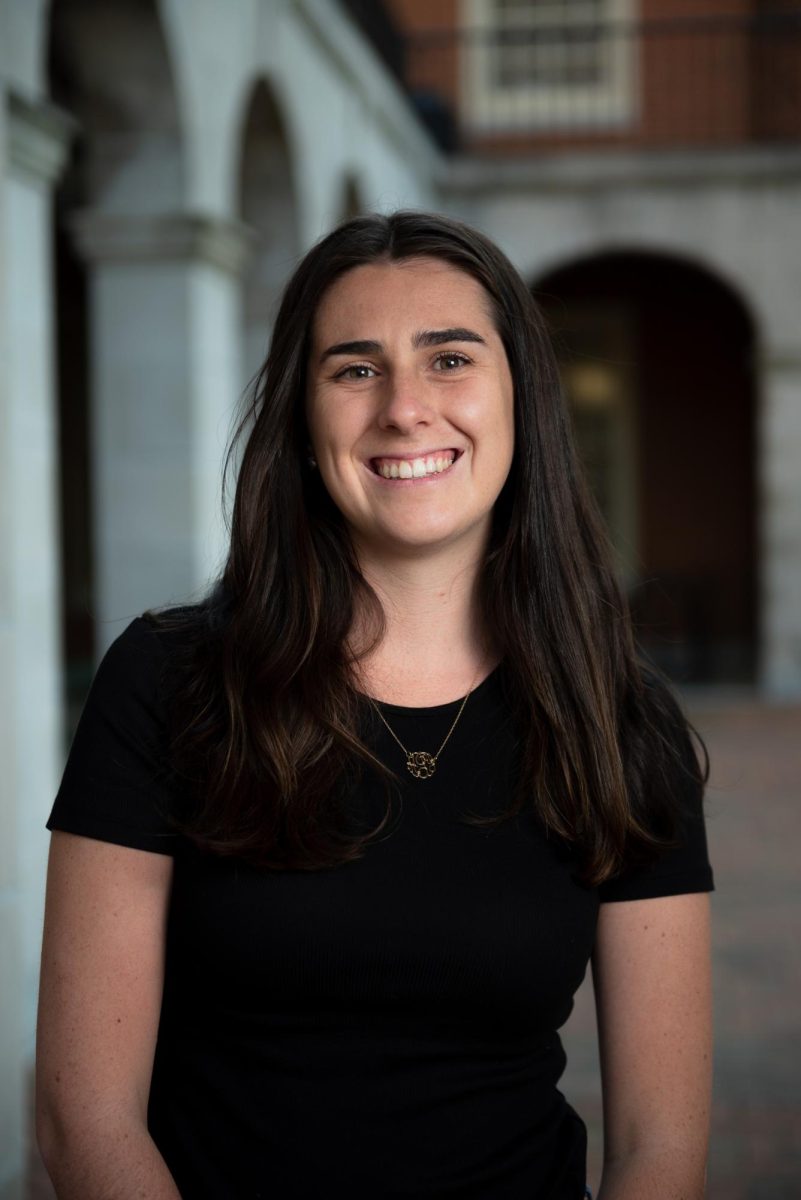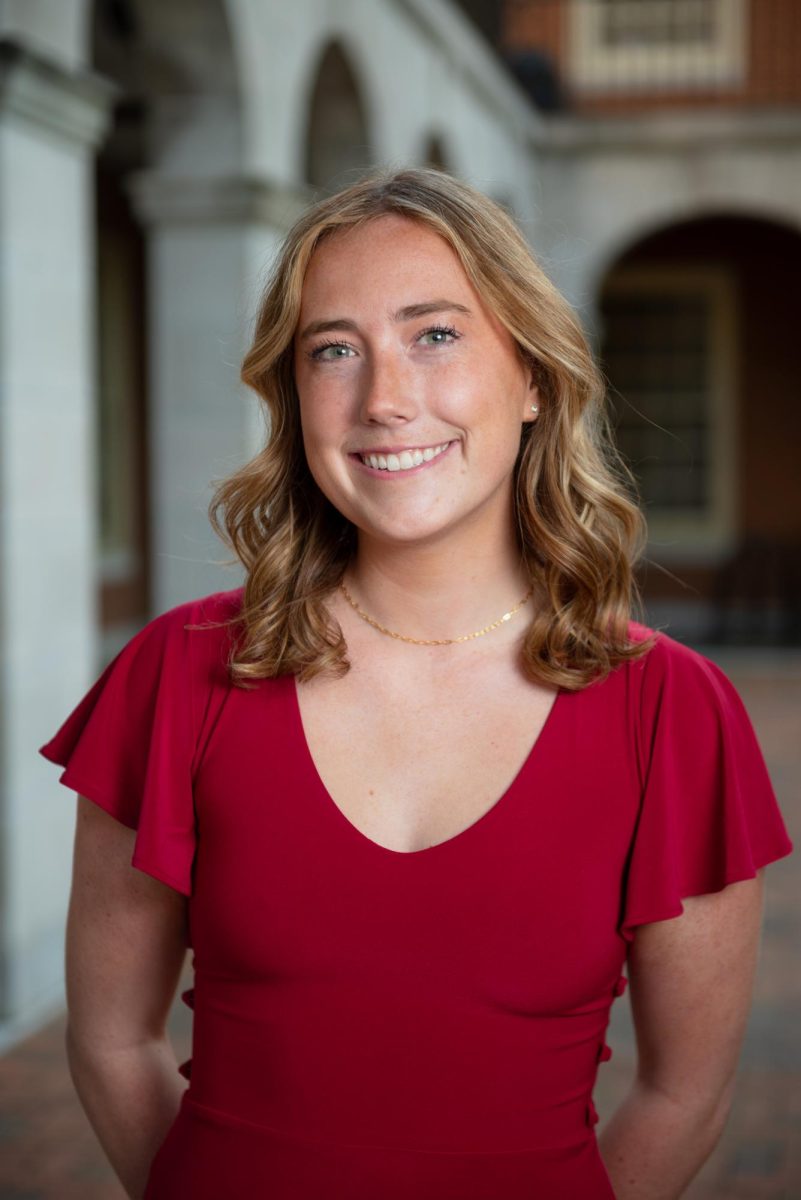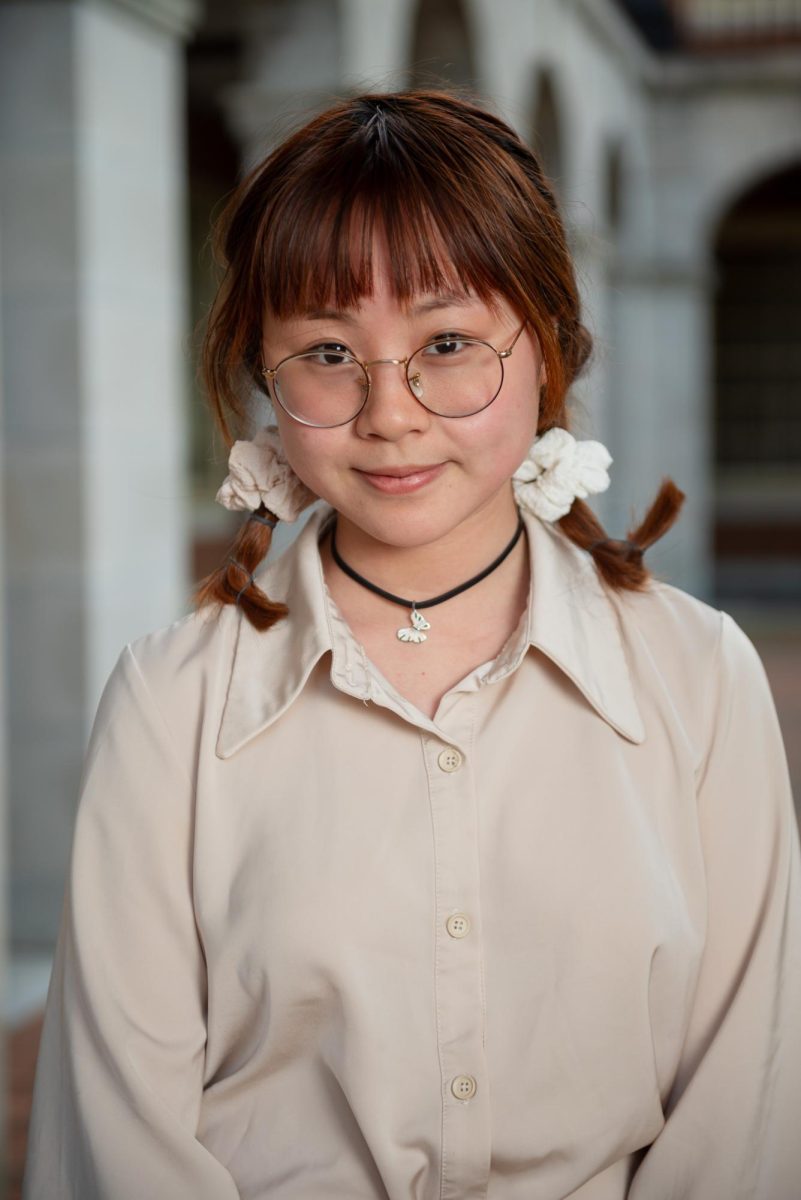Once at Wake Forest, Sierra Leslie immediately began taking advantage of the school’s unique educational opportunities. She spoke in particular about the first-year seminar that she took the first semester of her freshman year, Beware the Ides, Beware the Hemlock: Roleplaying Crisis in Ancient Greece and Rome (taught by Professor T.H.M. Gellar-Goad), an immersive class in which students were tasked with acting out the roles of various Greco-Roman figures (Leslie was Cicero).
Since then, Leslie looks back fondly on those first semester-classmates.
“I see the same people that I was in class with now, and they’ve blossomed into the most amazing people I’ve ever seen,” she said. “They’re brilliant, talented, funny, genuine, honest, creative, just amazing people.”
While adept at utilizing her opportunities in the classroom, Leslie also forged a remarkable connection with her voice coach, Teresa Radomski.
Leslie sang her praises, saying, “She is incredible. She has been pushing me since the beginning and has so much respect for music and how she treats her students. For me personally, she’s been a mentor … She’ll give me suggestions about things music-related or just life in general that she thinks would help me and that’s the mentorship part. She’s been supportive and patient and she really tries to foster the potential that she sees not just in me, but in other students also, and I really appreciate that.”
When asked about her personal developments from a major in music performance, Leslie was quick to name patience as her most significant takeaway.
“Music is the one thing that I absolutely have to take to learn,” Leslie said. “Because if I don’t learn it right, what’s the point? We are our worst critics, as performers and people … if I get upset with myself, I have to remember that it’s a process.”
Leslie was also swift to point out the ways that lessons from her major directly pertain to the way that social change moves on campus. Performance also provided an outlet for Leslie to speak herself into the public mind on campus.
“As a black woman on campus, I learned the importance of telling other stories and also my own,” she said.
Her senior recital provided the perfect opportunity for this act; Leslie performed a series of pieces “written from the perspective of black women,” which accomplished giving agency to traditionally unappreciated voices.
In a final moment of reflection, Leslie paused to lament that, “We can only do so much with the time that we have here. I’m leaving and someone else is going to take my place. If [injustice] happens over and over, we’re not going to get anywhere, and it’s got to be addressed somehow, and it’s got to start somewhere! Change, it’s inevitable, it’s got to happen eventually. Maybe not this time, maybe not even the next time, but I think this campus is capable of change.”



